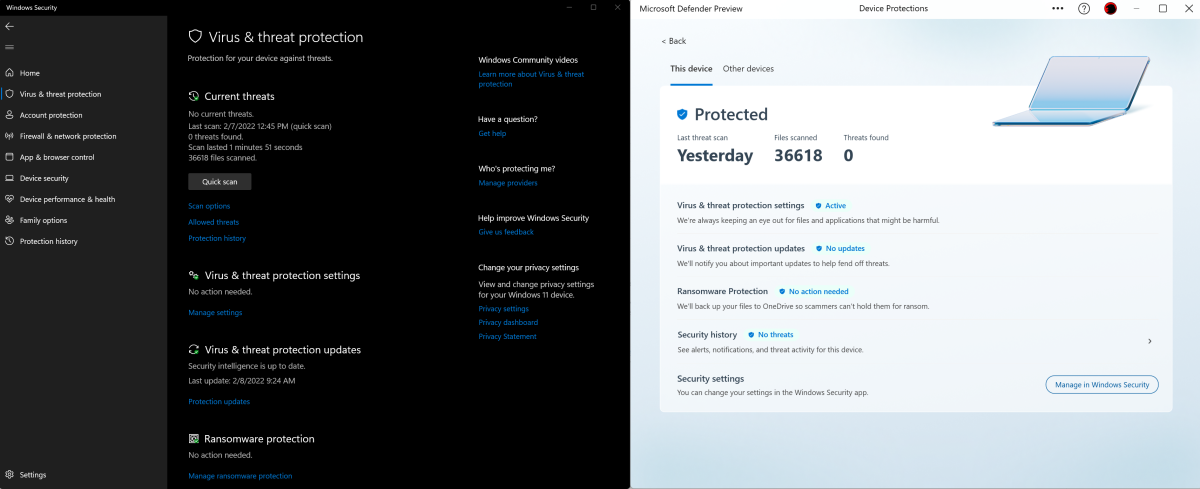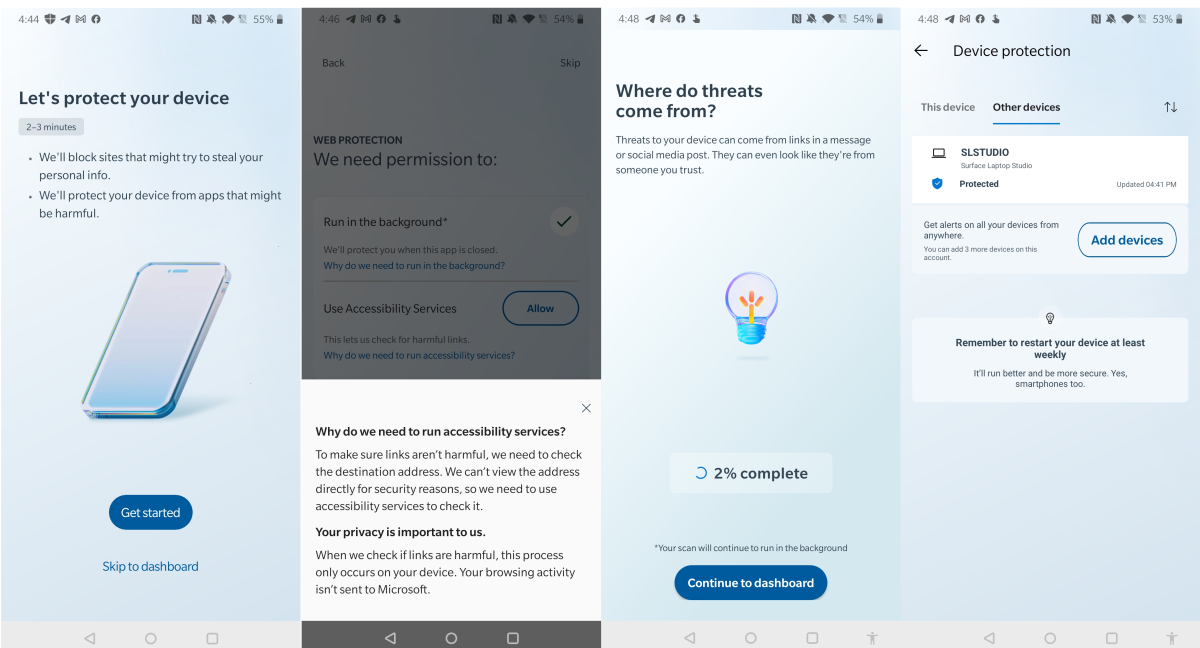Microsoft’s cross-platform preview version of Windows Defender, known as Microsoft Defender Preview, is now live: an attractive way to protect your Android phone as well as your PC.
If you merely own a Windows 11 PC, there’s nothing that demands you download Microsoft’s new preview app. It’s quite different, however, if you own an Android phone in addition to your PC. We’d recommend that you try out this attractive, free utility that promises to watch over the files you download on your phone as well as the links you access. (Defender Preview will supposedly protect Macs, as well, though we haven’t tested or confirmed this.)
There is a small catch, however: You’ll need a Microsoft account to use the Microsoft Defender Preview, and it will only protect a total of four devices.

Mark Hachman / IDG
WindowsLatest noticed that the app page for the Microsoft Defender Preview app is now live—both on the Microsoft Store, as well as for Google Play. (Though the Microsoft Defender Preview Store listing was live as of January, the service itself was inactive. That’s now changed.) You’re best served by installing the app on both your Android phone/tablet and your PC, as Defender provides you an overview of how it’s protecting all of your devices.
From a PC perspective, Microsoft Defender Preview doesn’t appear to do anything materially different from the Windows Defender that’s already on your PC. In fact, Microsoft Defender simply cleans up the “Virus and Threat Detection” dashboard from the Windows Security portion of Windows Defender and presents it in a modern, Windows 11-ish style. (Pulling out and cleaning up portions of Windows and repurposing them in other portions of Windows seems to be fairly common these days.) We don’t know, however, if Microsoft Defender will eventually replace Windows Security.
On a phone, at least, Microsoft Defender is much more straightforward. Yes, Google and Android work behind the scenes to protect your phone, but Microsoft Defender works to soothe that portion of your brain that seeks visible proof that your phone is being protected. Microsoft Defender sniffs links that you access on your phone to ensure you’re not downloading malware, and also investigates any apps already on your phone to ensure that they’re not known to harbor malware. Naturally, if it finds anything, it will pop up a notification.

Mark Hachman / IDG
Microsoft Defender will ask for permission to access the “Accessibility Services” permission of your Android device, which gives Defender that leeway to examine links and apps. It will also require you to manually toggle the permission switch, something you may not be accustomed to doing. Scans will take place periodically, which will cut down on battery life—but how much, we can’t say. It might be worthwhile to check your Android settings to determine how many resources Defender is consuming.
Microsoft Defender doesn’t seem to be a tool that responsible PC and Android users would necessarily need. But for those pre-teens and teens who have been given a phone to remain in contact with their parents (and may then decide to download apps willy-nilly), Defender seems like a decent safety blanket to ensure they’re not downloading a risky app that could end up stealing their data.
As PCWorld’s senior editor, Mark focuses on Microsoft news and chip technology, among other beats. He has formerly written for PCMag, BYTE, Slashdot, eWEEK, and ReadWrite.












